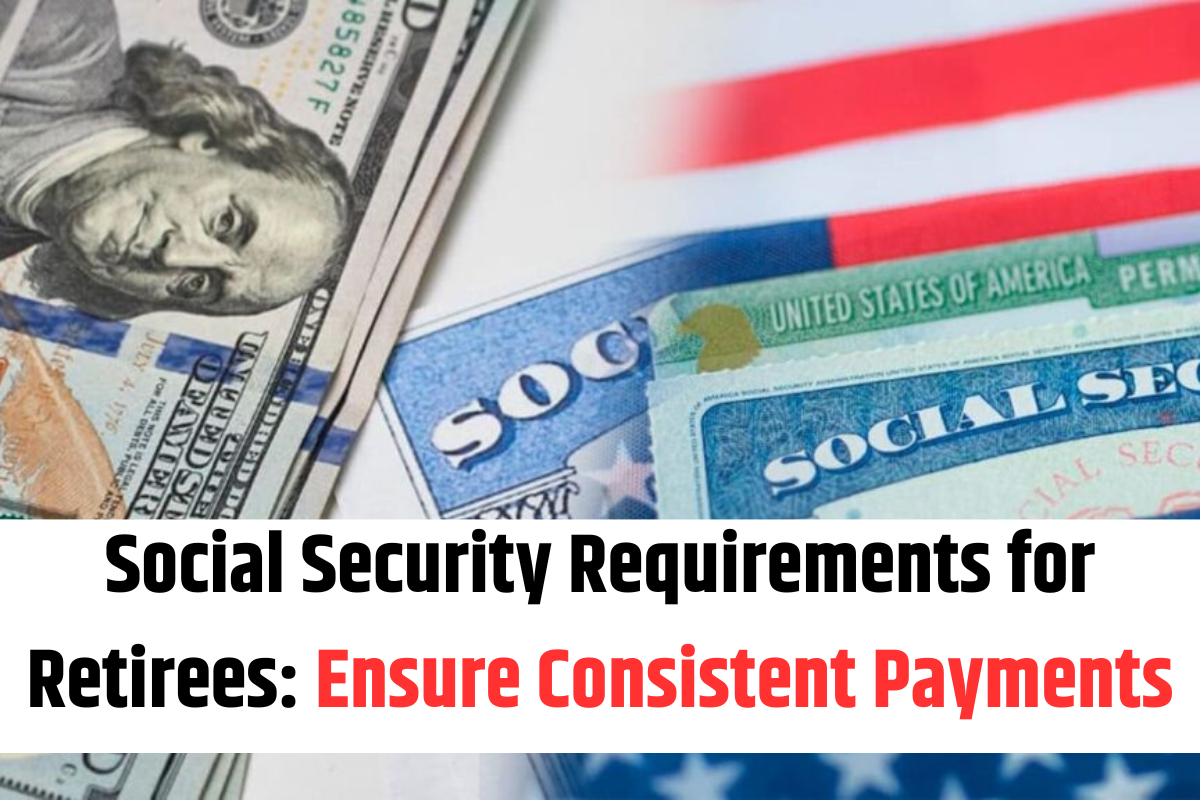The Social Security Administration (SSA) has issued an important reminder to retirees about the necessity of maintaining accurate personal information. Failure to follow SSA guidelines could result in interruptions to benefit payments. It’s essential for retirees to stay on top of changes in their personal details to ensure timely and consistent benefits.
Key Reasons for Potential Payment Suspensions
-
Failure to Update Personal Information
Retirees are required to notify the SSA of any changes in their address, marital status, or contact details. Failure to do so can lead to payment delays or even suspension of benefits. The SSA relies on up-to-date information to communicate effectively and process payments correctly. -
Not Reporting Additional Income
If you earn additional income while receiving Social Security benefits, it’s crucial to report it to the SSA. Exceeding the income limits set by the SSA can result in reduced benefits or, in some cases, suspension of your payments. This includes wages from part-time work, freelance income, or even rental income. Ensuring transparency with the SSA is key to preventing overpayments or disruptions. -
Residency Verification Issues
The SSA periodically checks residency status for all beneficiaries. If there are discrepancies in your records or if you fail to respond to residency verification requests, your payments could be delayed or suspended. The SSA uses these checks to confirm that recipients are still eligible for benefits based on their residency status.
Steps to Prevent Payment Suspensions
-
Regularly Update Personal Information
One of the simplest ways to avoid payment disruptions is by logging into your My Social Security account. Regularly check and update your personal details, including your address, marital status, and contact information. This will ensure that the SSA has accurate records for you. -
Report All Income Accurately
Retirees must report any earnings promptly to the SSA. Whether you’re working part-time or earning money from other sources, reporting this income will help you avoid overpayment issues. Not reporting additional income may lead to penalties and could even cause your Social Security payments to stop. -
Verify and Confirm Residency Details
SSA may occasionally send residency verification requests. If you receive one, it’s crucial to respond as soon as possible. If there are any discrepancies in your residency status, it could cause delays in your payments. -
Stay Vigilant Against Scams
Be cautious of fraudulent calls, emails, or texts that claim to be from the SSA. These may attempt to get your personal information or trick you into making a payment. Remember, the SSA will never demand immediate payment or personal details via unsolicited communication. If you’re ever in doubt, contact the SSA directly using official contact methods.
Understanding Voluntary Suspension of Benefits
Retirees who have reached full retirement age may choose to voluntarily suspend their Social Security benefits. This option allows them to earn delayed retirement credits, which will increase their future monthly payments. However, during the suspension period, you will not receive any benefit payments, and any income earned must still be reported to the SSA.
Interesting Facts about Social Security Benefits
-
Retirement Benefits Aren’t Automatically Increased with Cost of Living Adjustments (COLA)
While many people know that Social Security benefits may be adjusted annually for inflation (via COLA), not all beneficiaries will see this increase. Individuals who suspend their benefits or have other special circumstances may experience a different adjustment process. -
Social Security Disability Benefits vs. Retirement Benefits
If you’re receiving Social Security disability benefits and you reach full retirement age, your benefits automatically convert to retirement benefits. This doesn’t affect the amount you receive, but it can change the terminology of the payments. -
Your Benefits Could Be Reduced for Working While Receiving Social Security
If you’re under full retirement age and working while receiving Social Security benefits, your payments could be temporarily reduced. However, once you reach full retirement age, these reductions will be “paid back” to you in the form of higher monthly payments for the rest of your life.
FAQs :
Q: What happens if I don’t update my address with the SSA?
Failure to update your address can lead to missed payments or delays, as the SSA may not be able to contact you about important information, such as benefit changes or verifications.
Q: Can working part-time affect my Social Security benefits?
Yes, earning income while receiving Social Security benefits can affect your payments. If you earn over a certain amount, your benefits may be reduced. Be sure to report any earnings to the SSA to avoid unexpected disruptions in your payments.
Q: How can I verify that the SSA has my correct contact information?
To verify your contact details, log into your My Social Security account online. You can also contact the SSA directly at their official helpline to confirm and update your information.
Q: What should I do if I receive a fraudulent call claiming to be from the SSA?
If you receive a suspicious call, hang up immediately. The SSA will never demand immediate payment or personal information over the phone. Report the incident to the SSA directly or visit their website for more details on how to protect yourself from scams.
Q: Can I change my mind after voluntarily suspending my Social Security benefits?
Yes, retirees can change their minds after suspending benefits. If you decide to reinstate your benefits, you can contact the SSA to have your payments resumed. However, any income you earn during the suspension period must still be reported to the SSA.
Conclusion
By proactively managing your personal information and staying informed about SSA requirements, you can ensure the uninterrupted receipt of your Social Security benefits. It’s important to stay diligent in updating your address, reporting income, and responding to residency verification requests to avoid any potential payment disruptions. Keeping your information current and being aware of possible scams will ensure your benefits continue smoothly.
